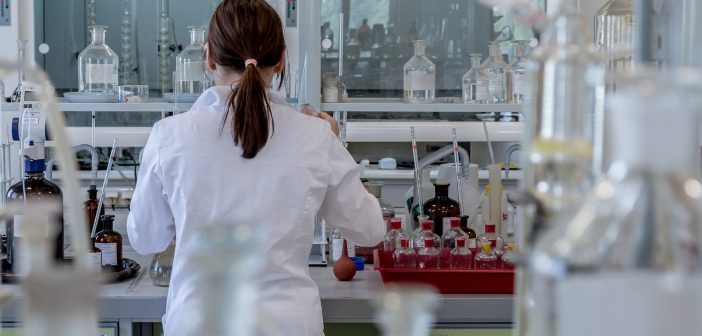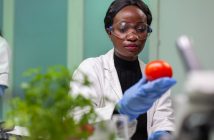Achenyo Ochuma, an independent pharma consultant on Kolabtree, writes about careers in pharmaceutical sciences based on her experience of 20 years. She pens down how to become a pharmaceutical consultant.
How to become a pharmaceutical consultant
Pharmaceutical Science is a discipline under Life Sciences and comprises a combination of different core foundation subject areas including biology and chemistry. My undergraduate degree in Pharmaceutical Sciences covered modules in Drug Action, Physiological systems, Bioanalysis, Pharmaceutical Products, Drug Development, Pharmacokinetics, Instrumentation, Pharmaceutics and Technology Transfer in a 3 year program. The modules were studied and assessed alongside practical laboratory experience. I also had the opportunity at the time to do a 1 year industrial placement program prior to my final year in university where I gained valuable work experience as a laboratory technician in an analytical company. I learnt about basic laboratory skills and application of theoretical techniques. This enabled more possibilities for my final year project and dissertation which was over one year later, when I returned to do part of my experiments in the same lab.
I now work independently as a pharma consultant. In this article I will be sharing my experience after my studies and my career to provide an overview of the field of pharmaceutical sciences and cover the possible career paths and options it offers.
Here’s a personal experience on how to become a pharmaceutical consultant.
Get to know how to become a pharmaceutical consultant:
Post-university experience
Knowledge about the industry after graduation from university was based on research I had done while studying in the last two years of my degree course. I had access to extensive information from the university career centre ranging from various publications and reference materials showing career guides tailored to the pharmaceutical industry and links to related professional body memberships. I remember reviewing a document produced by the industry trade association with a directory of different pharmaceutical companies and their speciality areas which was a good overview of what such organisations offered to graduates with contact information and signposting for internships and graduate programs. This was very useful in helping me focus and have a starting point for where to look for job opportunities in the long term. It is interesting to note that I later worked for the same organisation 14 years later and it was fulfilling that along my career journey I had the opportunity to work at a place which provided me with guidance earlier on as a student. Professional bodies were also another valuable source of information offering a lot of events, conferences and seminars for students and experienced individuals.
During this time I joined the Royal Society of Chemistry as a student member and I maintained my membership till date progressing on from Associate to Full membership level where I gained a lot of exposure to wider aspects of chemical sciences which were relevant to pharmaceutical science with full access to the library and databases which was useful in carrying out research while on my industrial placement and writing my dissertation.
Researching jobs
Research on the different types of jobs available in the industry was important in order to narrow down the areas I had an interest in for an industry which was quite broad. In terms of relevance to my degree course I had figured out that I could go in either the direction of research and development, manufacturing, formulation or sales and marketing if I wanted to divert more to the commercial aspects. I would also say that taking a year industrial placement gave me time to think more about what I wanted to do in the long term from gaining hands on experience in the laboratory environment. By the end of my placement I had a clearer view of the direction I wanted to take and this helped me greatly in my search for jobs knowing what to look out for that was suitable for graduates. In order to improve and boost my skills and knowledge I also considered starting a Masters degree to provide more options. I eventually started a course in Pharmaceutical Information Management at a different university on a part time basis alongside my first job a few months after graduation.
Work Experience
The work experience I have acquired in the last 16 years has been quite a varied one. My first role was an opportunity as a Clinical Project Assistant in a CRO which work closely with pharmaceutical companies in conducting clinical trials on prospective new drugs in early stages of the drug development process, to determine the safety and efficacy in humans on a small scale and collating vital data that determines important properties for further research. This was where my career began within clinical research. I worked in the organisation for over 6 years and moved in different departments covering roles relating to data management and project management. The opportunity was such that I experienced different aspects of the organisation and how it works together across the lab and in office based positions, and it served as a good foundation to apply some of the knowledge I learnt from my studies.
The next job I had was a Data Manager role within the NHS across two prominent teaching hospitals in London which were open to research and linked to academic institutions and funding organisations. This was a unique role as it involved clinical research in a different setting and wider scale across two different sites. I had a lot of transferable skills which helped me ease into the role and adapt to new and different ways of working. An interesting part was patient interaction and making a contribution towards routine healthcare whilst carrying out research therefore I gained more skills. After nearly 2 years I moved on to a new challenge which was considerably different working for a Trade association representing the industry where I started as a Clinical Development Manager and involved a lot of collaboration work with companies, organisations and stakeholders at a high level supporting various initiatives around clinical research, medical affairs and regulatory affairs with the policies, regulations and legislation that underpin relevant activities.
My role evolved during the time there to incorporate more policy work as an officer with oversight beyond clinical research including regulatory and safety policy. I gained a lot of exposure and networking opportunities with key policy makers considering I had previously worked in more operational roles, I got a better understanding of the bigger picture and a broad perspective on how systems are put in place. Following this I had a brief career break for family reasons and decided to take on an opportunity which was closer to the community where I could directly help the end users who will benefit from the results of work in the various drug development stages. I worked in a Community Pharmacy alongside Pharmacists to carry out dispensing of medication, advice on healthy lifestyle choices and provide guidance on minor ailments. This enabled me use a number of skills to facilitate patient interaction which I found interesting as no day was the same and I acquired additional customer service skills in a retail environment tailored to healthcare. I was keen to develop my skills further and took on the role of customer care ambassador to be the lead and champion in store towards improving customer care services.
Careers
The impact of my work experience has helped to broaden my knowledge about the possibilities and also think from the bigger perspective helped me answer in how to become a pharmaceutical consultant. I have learnt to adapt to different situations and work environments. A major advantage for me is the ability to see the connections across different aspects of such a diverse and broad field. I can also see there are a number of emerging roles which will shape the future in terms of digital transformation, bioinformatics and artificial intelligence applied to the industry. A number of opportunities exist across related areas of expertise which overlap with specialities such as pharmacology, biomedical science and biochemistry.
For anyone considering a career in pharmaceutical science or the industry questions how to become a pharmaceutical consultant, opportunities can be found in some of the following areas:
- Pharmaceutical companies/CRO : Research and Development (pre clinical & clinical research, regulatory affairs, pharmacovigilance) , Quality assurance, Quality control, manufacturing and formulation, commercial (sales and marketing, health economics), informatics & data management, statistics, medical information, medical affairs
- Healthcare industry: NHS (hospital research, pharmacy services)
For broader and strategic work involving policy, legislation and regulations - Medical charities
- Professional bodies and associations
- Government agencies and Regulatory authorities
- Funding organisations
In terms of exploring the role of freelancers and consultants in this field there is a lot of potential for services that could be offered based on the vast skills and knowledge. I believe it offers an opportunity to apply various skills if you are seeking a diverse and evolving role that can be utilised in multiple settings. There is also the added advantage of collaborative working in cross functional teams.
I have enjoyed this aspect of my career so far which has enabled me to have a broad perspective seeing the bigger picture and ways I can make an impact for a positive contribution in the community. My experience enabled me to develop skills which were transferable in different work environments, and this enhanced my personal growth and career development across various roles. I can also use creativity and innovation to bring fresh ideas. At this point I feel well equipped and in a better position to drive my career to the next level to deliver on a range of projects to bring value, knowledge and experience tailored to a specific client or employer need with a good standard of service offering. It provides the flexibility to create a personal career path that is fit for purpose. This is her personal experience on how to become a pharmaceutical consultant.
Need to hire a pharma consultant? Work with freelance biostatisticians, clinical trial experts and freelance medical writers on Kolabtree.








2 Comments
Hi Achenyo, I read your article with interest, I too am a pharma consultant, based in Vancouver Canada. I would like to connect with you via email to learn more about each other and be able to support each other. Thank you.
Hi Achenyo, I read your article with interest, I too am a pharma consultant, based in Manglore, India . I would like to connect with you via email to learn more about each other and be able to support each other. Thank you.